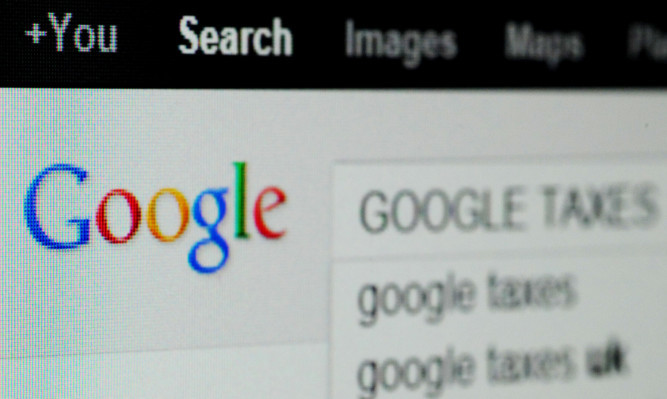Internet giant Google has agreed a £130 million deal with the taxman to pay money it has owed for the last decade.
The US online search firm said it had reached an agreement with HM Revenue and Customs covering taxes since 2005.
The arrangement will also see it start to pay tax “based on revenue from UK-based advertisers, which reflects the size and scope of our UK business”, it added.
The move comes after years of criticism of Google and other multinational firms over their tax arrangement in the UK and across Europe.
Meg Hillier, the chairwoman of the Common’s Public Accounts Committee (PAC) will call Google and HMRC figures before MPs to explain the deal, which she said showed HMRC “admitting it pulled in too little tax from Google for nine out of 10 years”.
A Google spokeswoman said: “We have agreed with HMRC a new approach for our UK taxes and will pay £130 million, covering taxes since 2005.
“We will now pay tax based on revenue from UK-based advertisers, which reflects the size and scope of our UK business.
“The way multinational companies are taxed has been debated for many years and the international tax system is changing as a result. This settlement reflects that shift and is in line with recent OECD guidance.”
The issue of how much UK tax multinational firms like Google, Amazon and Facebook pay in the UK has hit the headlines in recent years, with HMRC indicating back in October 2013 that it was looking into Google’s accounts.
In March’s Budget Chancellor George Osborne announced the introduction in April of a so-called “Google tax” targeting firms that move their profits overseas.
The “diverted profits tax” is designed to discourage large companies from taking earnings out of the UK to avoid tax.
Mr Osborne also said he would close tax loopholes that enabled businesses to take account of foreign branches when reclaiming VAT on their overheads, with the new tax measures expected to raise £3.1 billion over the next five years.
In September shadow chancellor John McDonnell told the Labour conference that if elected in 2020 the party would launch an “aggressive” drive to ensure multinational corporations pay “their fair share of taxes” as part of a bid to balance the nation’s books fairly.
An HMRC spokesman said on Friday night: “The successful conclusion of HMRC inquiries has secured a substantial result, which means that Google will pay the full tax due in law on profits that belong in the UK. Multinational companies must pay the tax that is due and we do not accept less.”
However Labour MP Mrs Hillier said the PAC would be examining the deal.
The committee’s previous chairwoman, Labour MP Margaret Hodge, was an outspoken critic of the firms’ tax affairs and led tough questioning of companies.
During PAC hearings, firms have been accused of “siphoning” off profits made in the UK to countries where they pay less tax.
Mrs Hodge branded tax avoidance “immoral” and suggested that Google’s tax activities were “evil”.
Mrs Hillier said on Friday night: “The news that Google is paying 10 years’ back tax vindicates the Public Accounts Committee’s vigorous pursuit of international companies that were running rings around tax officials.
“We were shocked to learn of workarounds of the tax system that were considered normal behaviour by big corporations but which appalled the individual taxpayer.
“HMRC now needs to assure taxpayers that it will keep up the pressure to tackle whatever the next emerging issue is in real time, rather than years later. It is effectively admitting it pulled in too little tax from Google for nine out of 10 years.
“This is not a great success rate and the Public Accounts Committee will be calling in HMRC and Google to explain.”
